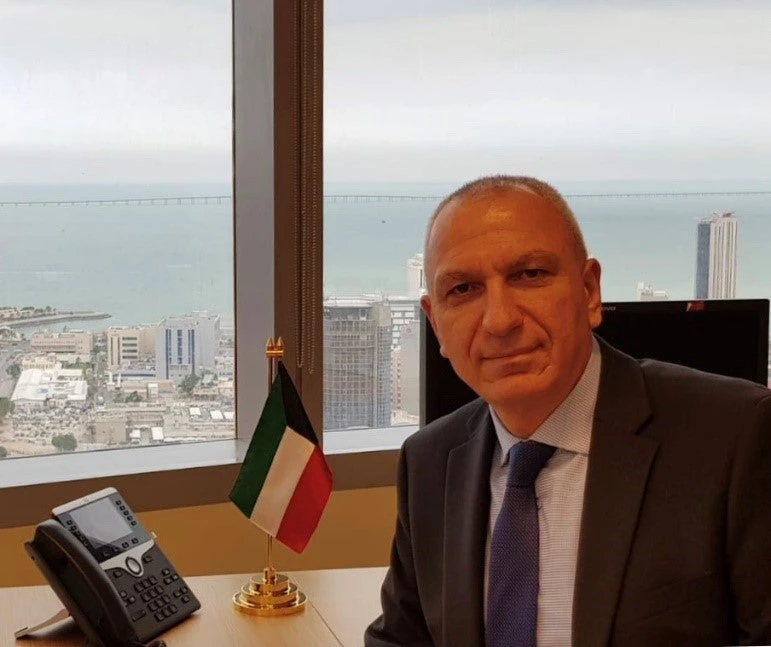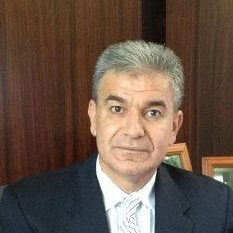 Aerial view of Kuwait City, Kuwait. Shutterstock.com/ Henryk Sadura
Aerial view of Kuwait City, Kuwait. Shutterstock.com/ Henryk Sadura
**This op-ed was first published in Arabic in AlJarida Newspaper.
In the last seven decades, Kuwait has achieved considerable progress in its social, political, and economic indicators, thanks to the wise utilization of oil revenues. It made the country one of the richest in the world with GDP per capita at US$34,000 in 2018. Kuwaiti citizens enjoy high levels of income and extended welfare and social services. Notwithstanding these achievements, there is a broad consensus among citizens and policy makers as well as within the region that the country has been performing below its potential and has not caught up with its peers in the GCC and other fast-growing emerging economies.
The Kuwaiti government has recognized that oil will not last forever, and technology is changing so fast that the overall reliance on oil will decrease with time. The government has embarked on a goal to diversify its economy endorsed by its “Vision 2035: New Kuwait” to reduce its reliance on oil. Reforms include many areas, including health, education, business environment, urbanization. One area that is fundamental to achieving much of this goal is reforming the land sector. Let me explain why this is an essential foundation for almost all other reforms in the country.
While Kuwait is one of the richest countries in the world, most Kuwaitis can’t afford to buy a home in their own country. Land is so expensive, and it costs around 80% of the value of the house, well above the international norm which is around 30%. The government provides 400 square meters for young families to build a house, but waiting time is an average of 15 years, and the location of the land parcels is far away from the city core where businesses, government, and leisure activities exist. The private sector has a serious problem in finding land for development and as a result is not able to provide necessary commercial, residential, or industrial buildings. This artificial shortage of land pushes prices so high, making it unaffordable for most Kuwait families and investors.
The government allocates land to various agencies such as the Public Authority for Housing, Public Authority for Agriculture, Public Authority for Industry, etc., and these agencies allocate land for third party use. In many cases, these allocated lands are either not used or not fully utilized. Interestingly, the government does not have the full database needed to assess which land is fully used or under-utilized. In addition, there is no mechanism to recover this land and re-allocate it for other important uses. In many cases, investors who want to invest in Kuwait cannot find a suitable land in the right location to build upon. In most countries, investors identify the location of land and buy it from property owners through market mechanisms. In Kuwait because land is mostly under state control and the state does not know exactly what it has, it becomes very difficult for investors to find suitable land. We hear many stories that investors want to invest in Kuwait but land is a major constraint.
Over the last three years, the World Bank supported the Government of Kuwait to identify bottlenecks in land issues, causes of the problems, and develop a road map for reform of the land sector. The road map includes two main pillars: first, institutional reform to aggregate all land functions under one agency, called the Land Authority, and to develop a complete inventory of land (one map), which agencies manage what land, leases over land, and terms of the leases. The second part is policy reform, which includes reviewing all government policies of land management and allocation, how government allocates land, policies to recover unused allocated land, introduction of market and transparent mechanisms for allocation, and providing public information about all land allocations. The policies should identify interventions with the goal to provide more land for development, discourages holding un-used or under-utilized land and property and reforming land use planning to allow for mix-use development. These reforms will ensure more supply for land for development, thus addresses the artificial shortage of land.
Kuwait can’t afford to waste more time in reforming the land sector. Any delay in reforming this sector may not be in the interest of the country, which is striving to develop economic diversification and enhance its role as a regional financial and commercial hub as envisioned in His Highness The Amir’s Vision of 2035: New Kuwait. Many countries and states around the world have established land authorities (or departments) that consolidate land functions under one agency, including Singapore, Dubai, the Netherlands, and recently Saudi Arabia.
The establishment of a Land Authority has many benefits, including 1) the efficient and transparent management of public land for the benefit of all citizens, 2) the improvement of planning and coordination mechanisms for the provision of public land, 3) the allocation of public land to the private sector through public auctions, whether for sale, lease or any other form of contract, and 4) the establishment of a complete and accurate database of all properties in Kuwait and the provision of information on land to the public in accordance with provisions set by the Council of Ministers.
The development of the land sector will send an important signal to Kuwaiti citizens and investors that Kuwait is determined to enhance the management of public land in the country as an integral component of its efforts to achieve economic diversification and shared prosperity in the coming years and decades. To conclude, reforming this sector is the basis for most other reforms needed to achieve the country’s Vision 2035.



Join the Conversation